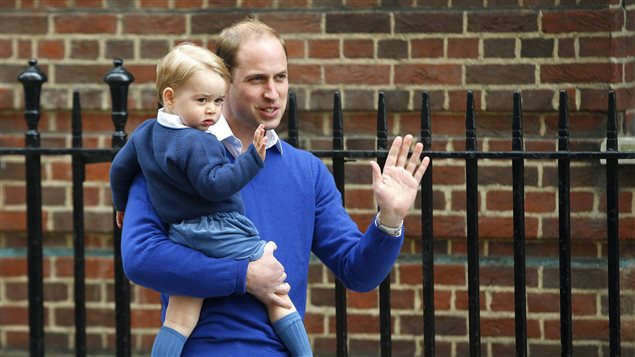The Succession to the Crown Act of 2013 updated several laws in Britain, in advance of the next generation of royals.
It replaced male-preference primogeniture with the first-born, regardless of gender, being first-in-line. It removed the need for those beyond the first six in-line, to seek permission of the monarch to marry, and in the event one of these six may want to marry a Catholic, they would no longer be disqualified.
When Canadian Autumn Kelly married Princess Anne’s son, Peter Phillips, she converted. But before Prince George was born, it was decided it was time to bring the British Monarchy into the 21st century,
Now two law professors at Quebec’s Laval University are contesting the recent law in Canada that made the changes to the rules of royal succession possible.
Patrick Taillon and Genevieve Motard do not object to the modernisation of the British monarchy, It is how it was handled in Canada that wrankles them.
They maintain, that this was a change to Canada’s constitution that needed the consent of the provinces, which Stephen Harper did not elicit.
The two professors want the law declared unconstitutional
They have the support of Quebec’s Attorney General as well as a monarchist league known as the Canadian Royal Heritage Trust.
The Canadian government’s position is that the change made by the British Parliament on royal succession, applied automatically under Canadian law, that the Canadian Parliament only had to pass a law providing ‘assent’, without any constitutional changes.
Taillon and Motard assert that the British Parliament lost its right to legislate for Canada in 1982, with the repatriation of the Constitution.
Taillon said, in a recent interview, the intention of the challenge is to ensure “the Canadian Constitution is respected by the federal government”.
The case begins on Monday. If the court finds the law invalid, Ottawa will be forced to either open the hornets nest of constitutional negotiations, where the provinces could present their demands, or, default on its obligations to the Commonwealth.
The case is expected to last two weeks in Quebec Superior Court.







For reasons beyond our control, and for an undetermined period of time, our comment section is now closed. However, our social networks remain open to your contributions.